The escalating trade war between the U.S. and China is keeping oil prices subdued, but the fear premium seems to be growing by the day as tensions across the Middle East threaten outages and even war.
(Click to enlarge)
(Click to enlarge)
(Click to enlarge)
(Click to enlarge)
(Click to enlarge)
(Click to enlarge)

(Click to enlarge)
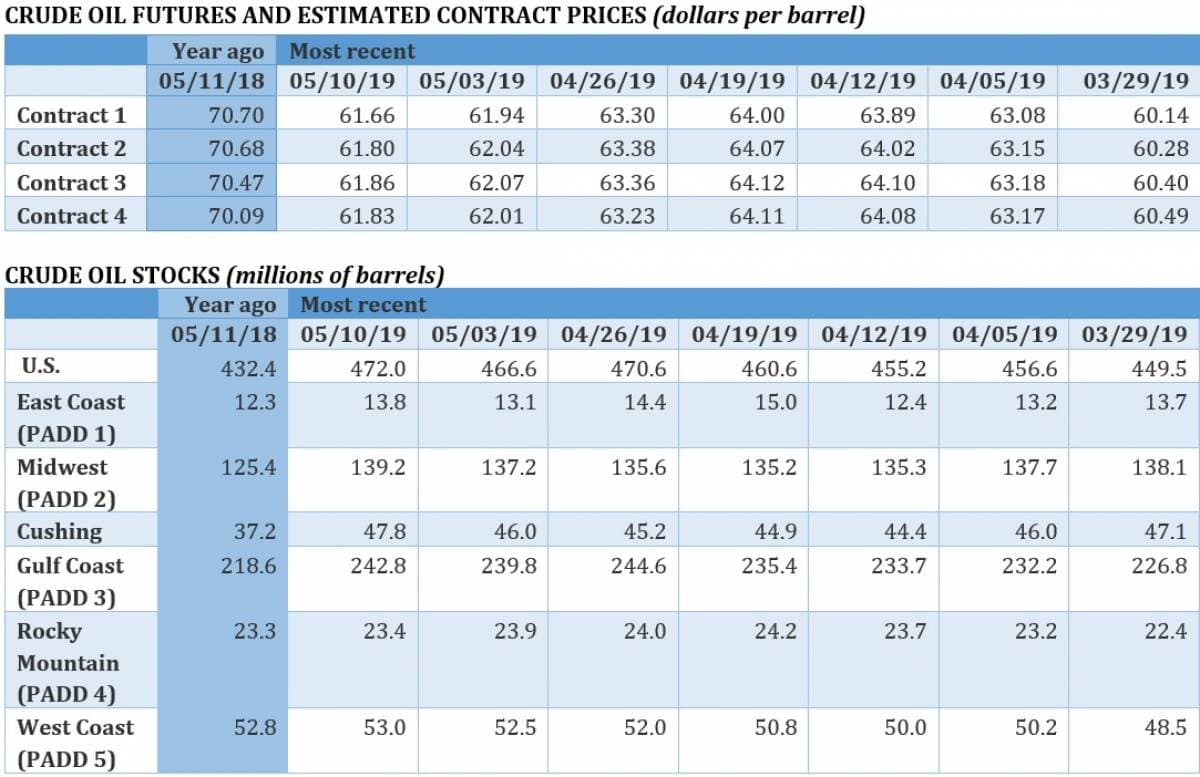
(Click to enlarge)
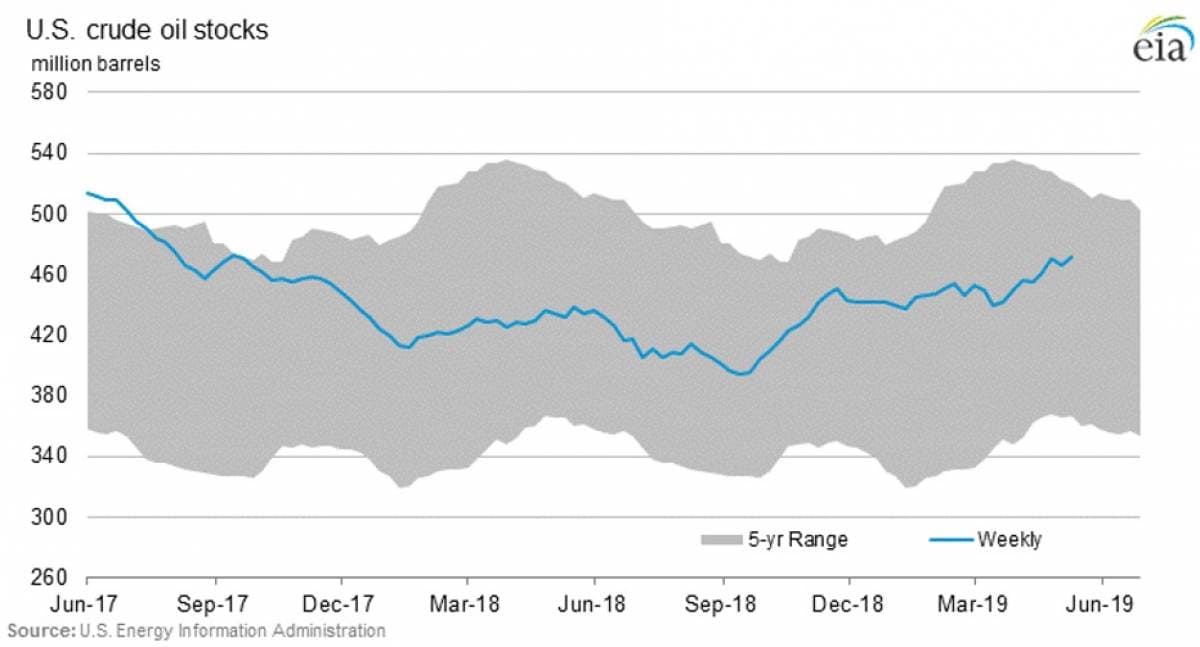
(Click to enlarge)
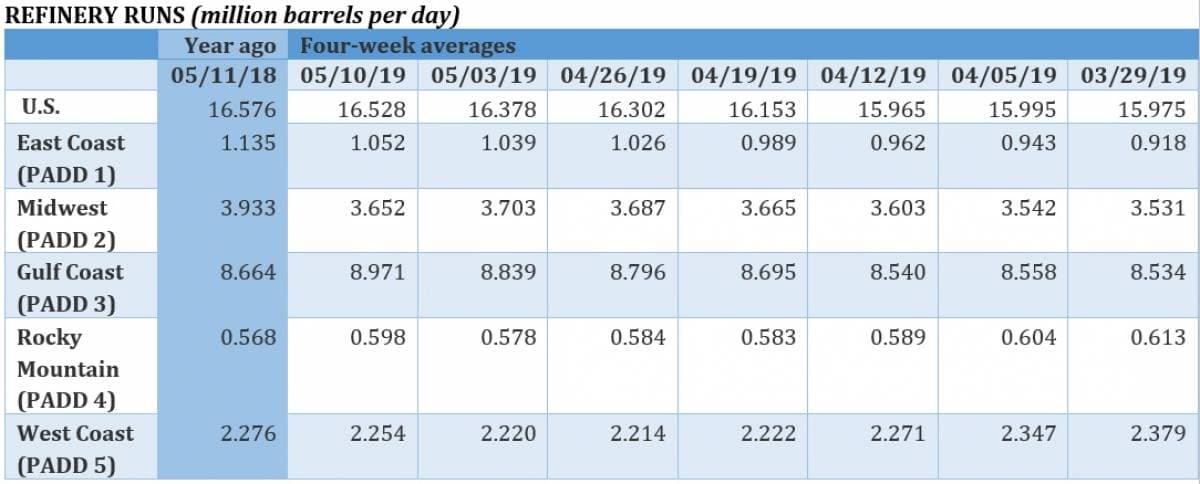
(Click to enlarge)
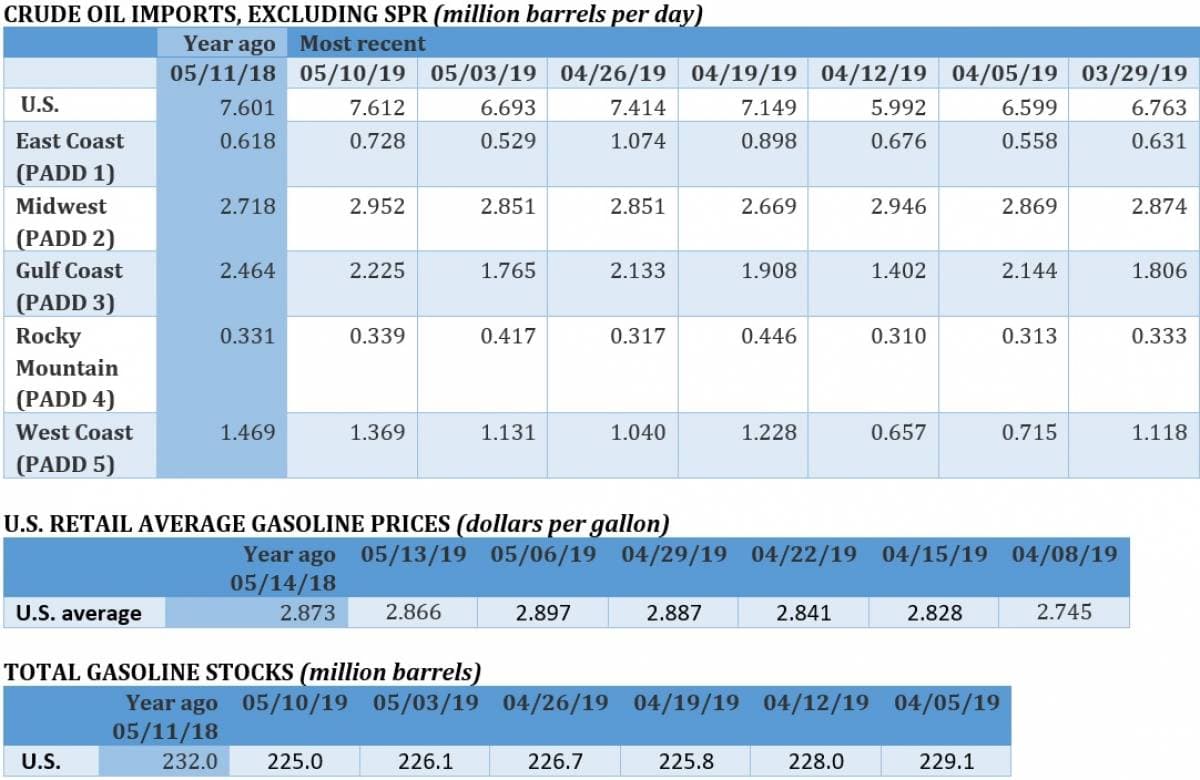
(Click to enlarge)
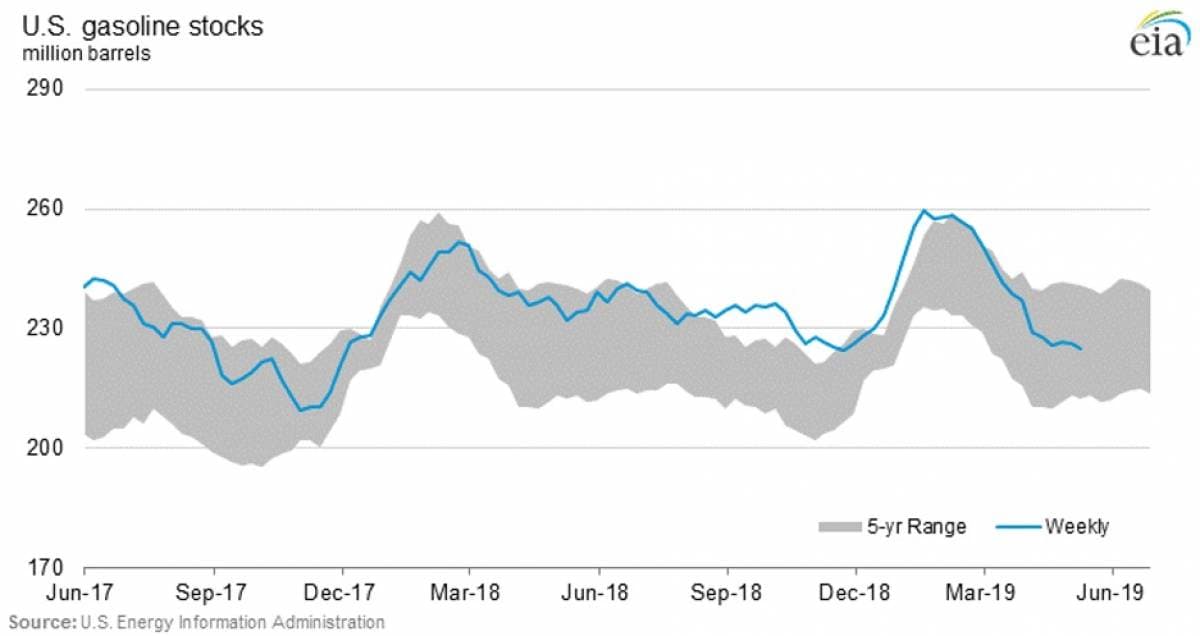
(Click to enlarge)
Friday, May 17th, 2019
Oil rose on Friday morning on supply outages and Middle East tensions before trade war fears dragged prices down again. Sentiment continues to swing between fears of weak demand in the wake of the U.S.-China trade war and fears of supply outages due to conflict in the Middle East.
Trump blacklists Huawei, deepening rift. On Thursday, President Trump essentially blacklisted Chinese telecom giant Huawei Technologies from operating in the U.S., escalating the standoff with China. The Chinese government typically offered a cautious tone in response trade actions from Washington, but Beijing and state media are taking an increasingly strident line, which suggests China is not close to backing down. China’s currency slid on the news, as did the Shanghai Composite Index.
Stalemate in Libya could cause next oil outage. The assault on Tripoli by the Libyan National Army (LNA) has fallen into a stalemate, and the ongoing fighting shows no sign of nearing resolution, despite calls for a ceasefire by global powers. The protracted battle increases the odds of an outage.
IEA: Oil market sending mixed messages. The IEA downgraded its demand estimate for 2019 by 90,000 bpd, as a result of an unexpectedly oversupplied first quarter. But supply outages threaten to take production offline. As a result, the oil market is giving off “mixed signals,” the agency said.
Related: Putin Could Cut His Loss As Venezuelan Oil Output Nosedives
Trump wary of war with Iran. After about two weeks of rapid escalation in tension between the U.S. and Iran, there could be de-escalation attempts in the offing. President Trump may be putting on the brakes, in part because of the potential political fallout at home. Trump met with Swiss President Ueli Maurer on Thursday. The Swiss have acted as a backchannel for U.S.-Iran talks in the past, which raised speculation that the White House might be trying to dial down the tension.
No increased threat seen in Iraq, despite U.S. embassy withdrawal. Royal Dutch Shell (NYSE: RDS.A) said on Thursday that it was monitoring the security situation in Iraq, after the U.S. pulled out embassy staff in Baghdad due to an alleged threat from Iran. Shell, ExxonMobil (NYSE: XOM), BP (NYSE: BP) and others are operating as usual. The decision to remove some workers “appears to be a political decision” Niamh McBurney, head of MENA for global risk analysis firm Verisk Maplecroft, told Platts in an email Thursday.
Russia hints at OPEC+ deal. As the OPEC+ coalition meets this weekend to take stock of the oil market and assess next steps, Russia reportedly wants to propose a production increase, perhaps by as much as 300,000 bpd. No action is expected until the official meeting in June, but Russia has repeatedly signaled its desire to loosen the production curtailments.
Internal combustion engine already peaked. “Sales of internal combustion passenger vehicles have already peaked,” Bloomberg New Energy Finance said in a recent report. Electric vehicles are growing from a small base, but they are accounting for nearly all of the growth in auto sales. EVs will reach price parity with the internal combustion engine by the mid-2020s, BloombergNEF said.
California threatens ban on internal combustion engine. The Trump administration is trying to strip California of its authority to set fuel emissions standards for cars. In response, California is threatening to ban the internal combustion engine altogether. “If we lose the state vehicle standards, we have to fill up the gap with other measures,” California Air Resources Board Chairman Mary Nichols said on Thursday. “We will be faced with dramatic alternatives in terms of tighter, stricter controls on everything else, including movement of vehicles and potentially looking at things like fees and taxes and bans on certain types of vehicles and products.”
Iranian tanker unloads in China. In a sign that China is willing to violate U.S. sanctions on Iran, an oil tanker docked in China and unloaded Iranian fuel oil, according to Reuters. Related: Global Oil Flows At Stake In New Middle East Proxy War
Another tainted Russian cargo loaded. Another tainted load of Russian oil was loaded from a port on the Baltic Sea, evidence that the contamination crisis is not over. “Traders receiving Urals crude at the Ust-Luga terminal said some oil continues to exceed acceptable levels of organic chloride, the contaminant blamed for major disruption to the nation’s exports since last month,” Bloomberg News reported.
WTL supply increases to 500,000 bpd. Permian producers began separating out ultralight oil from West Texas Intermediate (WTI) last year, starting up a new blend called West Texas Light (WTL). Supply of WTL has climbed to 500,000 bpd, according to Bloomberg, a four-fold increase from last year. Most of it will be exported since refineries along the Gulf Coast are better equipped to handle medium and heavy blends.
Attacks on Saudi tankers could raise costs. The recent attacks on Saudi oil tankers near the Persian Gulf could increase the cost of insurance and security, which may ultimately push up oil prices, according to the Wall Street Journal. “It’s a new threat,” Mark Gray, founder of U.K.-based MNG Maritime, which protects shipping traffic, told the WSJ. “The instinct of insurance companies will be to increase prices.”
Mozambique gives greenlight to Exxon LNG project. Mozambique authorized ExxonMobil’s (NYSE: XOM) and Eni’s (NYSE: E) LNG export project.
By Tom Kool for Oilprice.com
More Top Reads From Oilprice.com:










